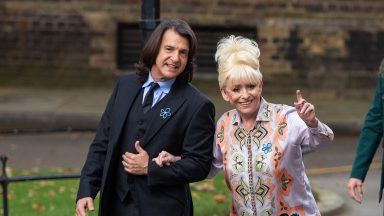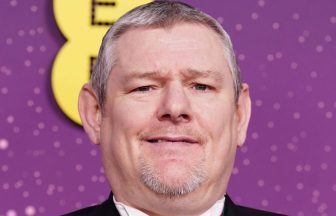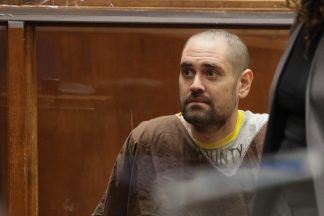Celine Dion has postponed dates for her upcoming concerts in Scotland, as well as across the UK and Europe, after being diagnosed with an incurable condition.
The Canadian singer, 54, told her Instagram followers on Thursday that she has been diagnosed with rare neurological condition stiff person syndrome after having muscle spasms.
As a result, she has cancelled and rescheduled dates for her upcoming tour which was due to start in February.
Dion said the spasms affect her daily life and create issues for her mobility and vocal cords.
Her Courage World Tour shows at the OVO Hydro in Glasgow, The O2 in London, AO Arena Manchester and Utilita Arena Birmingham have been moved.
She is now set to take the stage at Glasgow’s Hydro on April 13 and 14, 2024.
The singer wrote: “I’ve been dealing with problems with my health for a long time, and it’s been really difficult for me to face these challenges and to talk about everything that I’ve been going through…
“It hurts me to tell you that I won’t be ready to restart my tour in Europe in February.”
She added in an Instagram video: “Hello everyone, I’m sorry it’s taken me so long to reach out to you, I miss you all so much and I can’t wait to be on stage talking to you in person.
“As you know, I’ve always been an open book and I wasn’t ready to say anything before but I’m ready now.
“I’ve been dealing with problems with my health for a long time and it’s been really difficult for me to face these challenges and to talk about everything that I’ve been going through.
“Recently I’ve been diagnosed with a very rare neurological disorder called the stiff person syndrome which affects something like one in a million people.
“While we’re still learning about this rare condition, we now know this is what’s been causing all of the spasms that I’ve been having.
“Unfortunately, these spasms affect every aspect of my daily life, sometimes causing difficulties when I walk and not allowing me to use my vocal cords to sing the way I’m used to.
“It hurts me to tell you today, this means I won’t be ready to restart my tour in Europe in February.
“I have a great team of doctors working alongside me to help me get better and my precious children who are supporting me and giving me hope.
“I’m working hard with my sports medicine therapist every day to build back my strength and my ability to perform again but I have to admit it’s been a struggle.
“All I know is singing, it’s what I’ve done all my life and it’s what I love to do the most.
“I miss you so much, I miss seeing all of you being on the stage, performing for you.
“I always give 100% when I do my shows but my condition is not allowing me to give you that right now.
“For me to reach you again, I have no choice but to concentrate on my health at this moment and I have hope that I’m on the road to recovery. This is my focus and I’m doing everything that I can to recuperate.
“I want to thank you so much for your encouraging wishes of love and support on my social media, this means a lot to me.
“Take care of yourselves, be well. I love you guys so much and I really hope I can see you again real soon.”
University College London says the condition affects people, mainly in their 40s and 60s, with persistent spasms in their lower limbs and torso.
Sensory stimulation such as noise and light touch can also bring on severe spasms.
Respiration can be affected in advance cases of the disorder and spasms could become constant.
Follow STV News on WhatsApp
Scan the QR code on your mobile device for all the latest news from around the country


 Website
Website


























